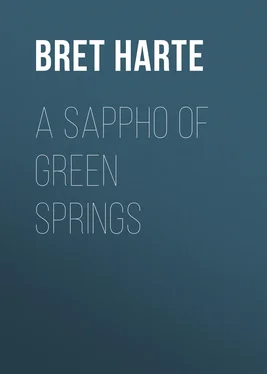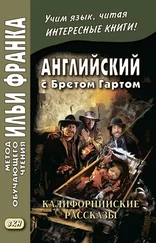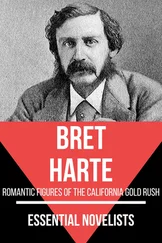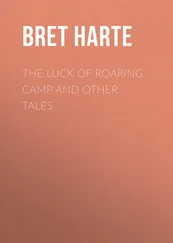Bret Harte - A Sappho of Green Springs
Здесь есть возможность читать онлайн «Bret Harte - A Sappho of Green Springs» — ознакомительный отрывок электронной книги совершенно бесплатно, а после прочтения отрывка купить полную версию. В некоторых случаях можно слушать аудио, скачать через торрент в формате fb2 и присутствует краткое содержание. Жанр: foreign_sf, literature_19, foreign_antique, foreign_prose, на английском языке. Описание произведения, (предисловие) а так же отзывы посетителей доступны на портале библиотеки ЛибКат.
- Название:A Sappho of Green Springs
- Автор:
- Жанр:
- Год:неизвестен
- ISBN:нет данных
- Рейтинг книги:4 / 5. Голосов: 1
-
Избранное:Добавить в избранное
- Отзывы:
-
Ваша оценка:
- 80
- 1
- 2
- 3
- 4
- 5
A Sappho of Green Springs: краткое содержание, описание и аннотация
Предлагаем к чтению аннотацию, описание, краткое содержание или предисловие (зависит от того, что написал сам автор книги «A Sappho of Green Springs»). Если вы не нашли необходимую информацию о книге — напишите в комментариях, мы постараемся отыскать её.
A Sappho of Green Springs — читать онлайн ознакомительный отрывок
Ниже представлен текст книги, разбитый по страницам. Система сохранения места последней прочитанной страницы, позволяет с удобством читать онлайн бесплатно книгу «A Sappho of Green Springs», без необходимости каждый раз заново искать на чём Вы остановились. Поставьте закладку, и сможете в любой момент перейти на страницу, на которой закончили чтение.
Интервал:
Закладка:
“I am very foolish,” she began, in a voice and accent that at once asserted a cultivated woman, “but I so seldom meet anybody here that a voice quite startled me. That, and the heat,” she went on, wiping her face, into which the color was returning violently—“for I seldom go out as early as this—I suppose affected me.”
Mr. Bowers had that innate Far-Western reverence for womanhood which I fancy challenges the most polished politeness. He remained patient, undemonstrative, self-effacing, and respectful before her, his angular arm slightly but not obtrusively advanced, the offer of protection being in the act rather than in any spoken word, and requiring no response.
“Like as not, ma’am,” he said, cheerfully looking everywhere but in her burning face. “The sun IS pow’ful hot at this time o’ day; I felt it myself comin’ yer, and, though the damp of this timber kinder sets it back, it’s likely to come out ag’in. Ye can’t check it no more than the sap in that choked limb thar”—he pointed ostentatiously where a fallen pine had been caught in the bent and twisted arm of another, but which still put out a few green tassels beyond the point of impact. “Do you live far from here, ma’am?” he added.
“Only as far as the first turning below the hill.”
“I’ve got my buggy here, and I’m goin’ that way, and I can jist set ye down thar cool and comfortable. Ef,” he continued, in the same assuring tone, without waiting for a reply, “ye’ll jist take a good grip of my arm thar,” curving his wrist and hand behind him like a shepherd’s crook, “I’ll go first, and break away the brush for ye.”
She obeyed mechanically, and they fared on through the thick ferns in this fashion for some moments, he looking ahead, occasionally dropping a word of caution or encouragement, but never glancing at her face. When they reached the buggy he lifted her into it carefully,—and perpendicularly, it struck her afterwards, very much as if she had been a transplanted sapling with bared and sensitive roots,—and then gravely took his place beside her.
“Bein’ in the timber trade myself, ma’am,” he said, gathering up the reins, “I chanced to sight these woods, and took a look around. My name is Bowers, of Mendocino; I reckon there ain’t much that grows in the way o’ standin’ timber on the Pacific Slope that I don’t know and can’t locate, though I DO say it. I’ve got ez big a mill, and ez big a run in my district, ez there is anywhere. Ef you’re ever up my way, you ask for Bowers—Jim Bowers—and that’s ME.”
There is probably nothing more conducive to conversation between strangers than a wholesome and early recognition of each other’s foibles. Mr. Bowers, believing his chance acquaintance a superior woman, naively spoke of himself in a way that he hoped would reassure her that she was not compromising herself in accepting his civility, and so satisfy what must be her inevitable pride. On the other hand, the woman regained her self-possession by this exhibition of Mr. Bowers’s vanity, and, revived by the refreshing breeze caused by the rapid motion of the buggy along the road, thanked him graciously.
“I suppose there are many strangers at the Green Springs Hotel,” she said, after a pause.
“I didn’t get to see ‘em, as I only put up my hoss there,” he replied. “But I know the stage took some away this mornin’: it seemed pretty well loaded up when I passed it.”
The woman drew a deep sigh. The act struck Mr. Bowers as a possible return of her former nervous weakness. Her attention must at once be distracted at any cost—even conversation.
“Perhaps,” he began, with sudden and appalling lightness, “I’m a-talkin’ to Mrs. McFadden?”
“No,” said the woman, abstractedly.
“Then it must be Mrs. Delatour? There are only two township lots on that crossroad.”
“My name IS Delatour,” she said, somewhat wearily.
Mr. Bowers was conversationally stranded. He was not at all anxious to know her name, yet, knowing it now, it seemed to suggest that there was nothing more to say. He would, of course, have preferred to ask her if she had read the poetry about the Underbrush, and if she knew the poetess, and what she thought of it; but the fact that she appeared to be an “eddicated” woman made him sensitive of displaying technical ignorance in his manner of talking about it. She might ask him if it was “subjective” or “objective”—two words he had heard used at the Debating Society at Mendocino on the question, “Is poetry morally beneficial?” For a few moments he was silent. But presently she took the initiative in conversation, at first slowly and abstractedly, and then, as if appreciating his sympathetic reticence, or mayhap finding some relief in monotonous expression, talked mechanically, deliberately, but unostentatiously about herself. So colorless was her intonation that at times it did not seem as if she was talking to him, but repeating some conversation she had held with another.
She had lived there ever since she had been in California. Her husband had bought the Spanish title to the property when they first married. The property at his death was found to be greatly involved; she had been obliged to part with much of it to support her children—four girls and a boy. She had been compelled to withdraw the girls from the convent at Santa Clara to help about the house; the boy was too young—she feared, too shiftless—to do anything. The farm did not pay; the land was poor; she knew nothing about farming; she had been brought up in New Orleans, where her father had been a judge, and she didn’t understand country life. Of course she had been married too young—as all girls were. Lately she had thought of selling off and moving to San Francisco, where she would open a boarding-house or a school for young ladies. He could advise her, perhaps, of some good opportunity. Her own girls were far enough advanced to assist her in teaching; one particularly, Cynthia, was quite clever, and spoke French and Spanish fluently.
As Mr. Bowers was familiar with many of these counts in the feminine American indictment of life generally, he was not perhaps greatly moved. But in the last sentence he thought he saw an opening to return to his main object, and, looking up cautiously, said:—
“And mebbe write po’try now and then?” To his great discomfiture, the only effect of this suggestion was to check his companion’s speech for some moments and apparently throw her back into her former abstraction. Yet, after a long pause, as they were turning into the lane, she said, as if continuing the subject:—
“I only hope that, whatever my daughters may do, they won’t marry young.”
The yawning breaches in the Delatour gates and fences presently came in view. They were supposed to be reinforced by half a dozen dogs, who, however, did their duty with what would seem to be the prevailing inefficiency, retiring after a single perfunctory yelp to shameless stretching, scratching, and slumber. Their places were taken on the veranda by two negro servants, two girls respectively of eight and eleven, and a boy of fourteen, who remained silently staring. As Mr. Bowers had accepted the widow’s polite invitation to enter, she was compelled, albeit in an equally dazed and helpless way, to issue some preliminary orders:—
“Now, Chloe—I mean aunt Dinah—do take Eunice—I mean Victorine and Una—away, and—you know—tidy them; and you, Sarah—it’s Sarah, isn’t it?—lay some refreshment in the parlor for this gentleman. And, Bob, tell your sister Cynthia to come here with Eunice.” As Bob still remained staring at Mr. Bowers, she added, in weary explanation, “Mr. Bowers brought me over from the Summit woods in his buggy—it was so hot. There—shake hands and thank him, and run away—do!”
Читать дальшеИнтервал:
Закладка:
Похожие книги на «A Sappho of Green Springs»
Представляем Вашему вниманию похожие книги на «A Sappho of Green Springs» списком для выбора. Мы отобрали схожую по названию и смыслу литературу в надежде предоставить читателям больше вариантов отыскать новые, интересные, ещё непрочитанные произведения.
Обсуждение, отзывы о книге «A Sappho of Green Springs» и просто собственные мнения читателей. Оставьте ваши комментарии, напишите, что Вы думаете о произведении, его смысле или главных героях. Укажите что конкретно понравилось, а что нет, и почему Вы так считаете.












